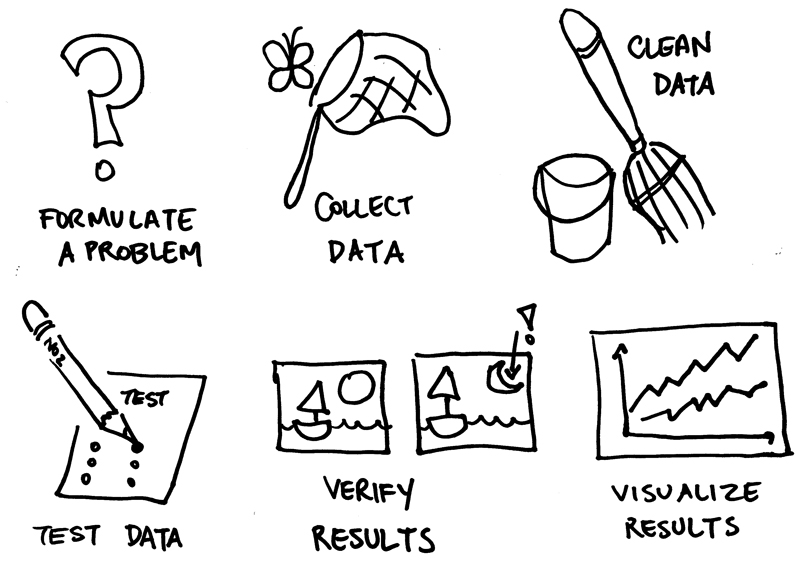
Slides for Data Analytics for Managers are now live! (web | github)
I recently teamed up with Richard Dunks (Datapolitan), who has been teaching this class to city employees through the NYC Department of Citywide Administrative Services for the past two years. Our goal: get this class online and revise and scale it for broader audiences, while continuing to meet educational needs of NYC employees.
We used Remark.js, a very simple tool for putting slides online, worked with Matt LeMay at Constellate Data to help guide our revisions, and I got to break out my new set of Sharpies to do the illustrations. All in all, a great project.
We’re looking forward to continuing to update this class and others next year, so please let us know what you think!
